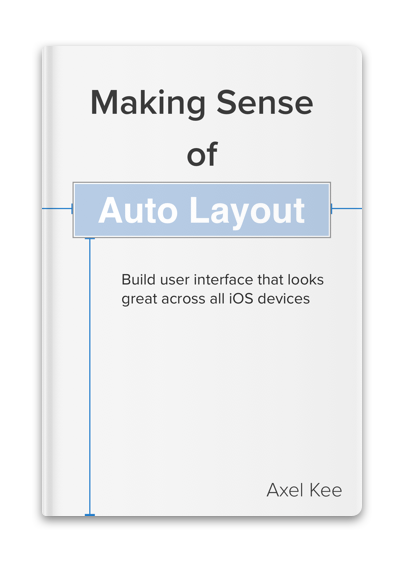If you have tried to save custom object into UserDefaults before, you might get an error like this:
'NSInvalidArgumentException', reason: 'Attempt to insert non-property list object appName.Player(name: "Axel", highScore: 42) for key current_player'
According to Apple's documentation on UserDefaults,
A default object must be a property list—that is, an instance of (or for collections, a combination of instances of) NSData, NSString, NSNumber, NSDate, NSArray, or NSDictionary.
As UserDefaults can only accept those types mentioned above, to save a custom object into UserDefault, we have to convert it into NSData first.
Before Apple introduced the Codable protocol, the way to convert custom object into NSData is using NSKeyedArchiver with NSCoding protocol like this:
// only class can be conformed to NSCoding, struct can't.
// class must inherit from NSObject to use NSKeyedArchiver.
class Player : NSObject, NSCoding {
var name: String
var highScore: Int
// Normal initializer
init(name: String, highScore: Int) {
self.name = name
self.highScore = highScore
}
// MARK: NSCoding
required convenience init?(coder decoder: NSCoder) {
guard let name = decoder.decodeObject(forKey: "name") as? String
else { return nil }
self.init(
name: name,
highScore: decoder.decodeInteger(forKey: "highScore")
)
}
func encode(with aCoder: NSCoder) {
aCoder.encode(self.name, forKey: "name")
aCoder.encode(self.highScore, forKey: "highScore")
}
}
// ViewController.h
@IBAction func saveUserDefaults(_ sender: Any) {
let player = Player(name: "Axel", highScore: 42)
let defaults = UserDefaults.standard
// use NSKeyedArchiver to convert Player object into Data / NSData type
let playerData = NSKeyedArchiver.archivedData(withRootObject: player)
defaults.set(playerData, forKey: "player")
}
@IBAction func loadUserDefaults(_ sender: Any) {
let defaults = UserDefaults.standard
guard let playerData = defaults.object(forKey: "player") as? Data else {
return
}
// Use NSKeyedUnarchiver to convert Data / NSData back to Player object
guard let player = NSKeyedUnarchiver.unarchiveObject(with: playerData) as? Player else {
return
}
print("player name is \(player.name)")
}
The problem with this approach is that there's quite some boilerplate code to write (eg: required convenience init?(coder decoder: NSCoder) and func encode), and this gets repetitive if the object has a lot of properties. This approach is also prone to mistake as you might mistakenly typed wrong the key string for forKey and then scratching your head afterwards figuring why it doesn't work when saving / loading (happened to me twice 😅).
A better way to save custom object into UserDefaults is using the Codable protocol introduced by Apple in Swift 4.
Using Codable
Using Codable, we can use struct instead of class as it doesn't need to conform to NSObject anymore.
The refactored Player struct would like this:
struct Player : Codable {
var name: String
var highScore: Int
}
Surprisingly short huh? You just need to add the Codable protocol to it.
Codable is the combination of Encodable and Decodable protocol, conforming to Codable means conforming to both Encodable and Decodable.
typealias Codable = Decodable & Encodable
Encodable allows object to be encoded to a certain format using some encoder like JSONEncoder, PropertyListEncoder etc.
Decodable allows object to be decoded from a certain format using some decoder like JSONDecoder, PropertyListDecoder etc.
As to saving / loading the object to / from UserDefaults, we can do it like this:
// ViewController.swift
@IBAction func saveUserDefaults(_ sender: Any) {
let player = Player(name: "Axel", highScore: 42)
let defaults = UserDefaults.standard
// Use PropertyListEncoder to convert Player into Data / NSData
defaults.set(try? PropertyListEncoder().encode(player), forKey: "player")
}
@IBAction func loadUserDefaults(_ sender: Any) {
let defaults = UserDefaults.standard
guard let playerData = defaults.object(forKey: "player") as? Data else {
return
}
// Use PropertyListDecoder to convert Data into Player
guard let player = try? PropertyListDecoder().decode(Player.self, from: playerData) else {
return
}
print("player name is \(player.name)")
}
We will now explain what does try? PropertyListEncoder().encode(player) do.
PropertyListEncoder() will create an instance of PropertyListEncoder, then it will encode the custom struct into Data type and return the converted Data type using encode().
There's a try? in front as the encode() method might throw an error if the encoding process fail (eg: might be due to invalid codable structure, similar like parsing an invalid JSON). If the encode() throws an error, try? will catch the error, and make the whole statement PropertyListEncoder().encode(player) return nil.
If error happens, try? PropertyListEncoder().encode(player) will become nil and you will end up saving nil value for the key player. This is fine as by default, UserDefaults' keys that don't have value stored will return nil when loaded.
Similarly, try? PropertyListDecoder().decode(Player.self, from: playerData) will attempt to decode the Data saved in UserDefaults and convert it into Player struct then return it. PropertyListDecoder() will create an instance of PropertyListDecoder and decode(Player.self, from: playerData) will decode the Data from UserDefaults to Player struct (Player.self tells the decoder to decode into Player struct type)
There's also a 'try?' in front of PropertyListDecoder().decode as the decode() method might throw an error as well if the decoding process fail (eg: might be due to invalid codable structure, similar like parsing an invalid JSON).
